From May 15 to 17,
an international symposium on UNESCO Category 2 Centers (C2Cs) in the Natural Sciences
was held in Kuala Lumpur, Malaysia. Organized by UNESCO, the International
Science, Technology and Innovation Centre for South-South Cooperation (ISTIC),
the Permanent Mission of Malaysia to UNESCO and the Malaysian National
Commission for UNESCO, the meeting was attended by Lidia Brito, Assistant
Director-General of UNESCO, who delivered speeches and presentations throughout
the meeting. Fadhlina Sidek, Minister of Education of Malaysia, and Chang Lih
Kang, Minister of Science, Technology and Innovation of Malaysia, attended and
delivered speeches respectively. Thirty-four UNESCO Category 2 Centers from 23
countries attended the meeting and exchanged ideas on "Science-based
cooperation and key activities for sustainable development". As the first
UNESCO Category 2 Centers in the world, the International Research and Training
Center on Erosion and Sedimentation (IRTCES) participated in the symposium and
exchanged presentations, made group summary speeches and exhibitions.
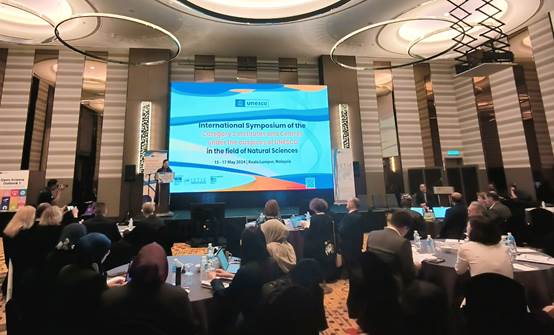
Seminar venue.
UNESCO Assistant
Director-General Lidia Brito made presentations on "UNESCO's Priorities
and Actions in the Natural Sciences" and "The International Decade of
Science for Sustainable Development". Lidia Brito, Fadhlina Sidek, Minister
of Education of Malaysia, and Chang Lih Kang, Minister of Science, Technology
and Innovation, highlighted UNESCO's scientific and technological role in the
United Nations sustainable development agenda in the areas of Water security, Sustainable
management of natural resources, Disaster mitigation and climate change action,
and Innovation in the basic sciences and engineering technologies, and
explained the role of UNESCO in the areas of Water sciences, Ecological and
earth sciences, Science and technology policy and basic sciences, Small island
development, Disaster mitigation and climate change. The plan of action in
Water sciences, Ecological and earth sciences, Science and technology policy
and basic sciences, Small island development, and Disaster mitigation was
presented, as well as the vision, objectives, mandate and main outputs of the “International
Decade of Science for Sustainable Development”. In particular, it was noted
that UNESCO Category 2 Centers (C2Cs) have become increasingly important in the
implementation of the corresponding programmes and actions, and have become a
vital conduit of expertise and resources to address pressing global challenges.
More than just a repository of knowledge, Category 2 Centers have become active
agents of change in fostering cooperation and innovation on a global scale,
particularly in advancing the United Nations sustainable development agenda in
Member States.
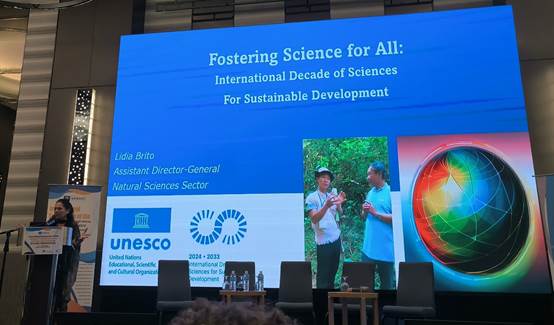
Presentation on “The International Decade of Science
for Sustainable Development” by Lidia Brito, Assistant Director-General,
UNESCO
Presentations from
UNESCO's Science, Technology, Innovation and Policy Division, Capacity
Development and Water Sector Coordination Division, Biosphere Reserves and
Capacity Building Division, and project experts Ezra Clark, Rahmah Elfithri,
Hans Thulstrup, ZHAO Jing, Faduma Ali, and Fereshteh Rafieian gave
presentations from their respective fields. Thirty-four Category 2 Centers from
all over the world exchanged and discussed on five topics: Water Science
Research, Education and Capacity Development, Centers for Sustainable
Development: UNESCO Locations and Networks, Water and Disaster Mitigation,
Responding to Global Crisis: Climate Change and Biodiversity, and Revolutionary
Changes in Engineering Capacity Building for Sustainable Development Goals. Prof.
ZHANG Jianli, Deputy Director of IRTCES, shared and exchanged views on the
background of IRTCES, the challenges it faces, the advantages of its platform,
the role it plays as a bridge in the International Sediment Initiative, project
cooperation, international conferences, international training, popular science
education, open science and open data, and future cooperation.
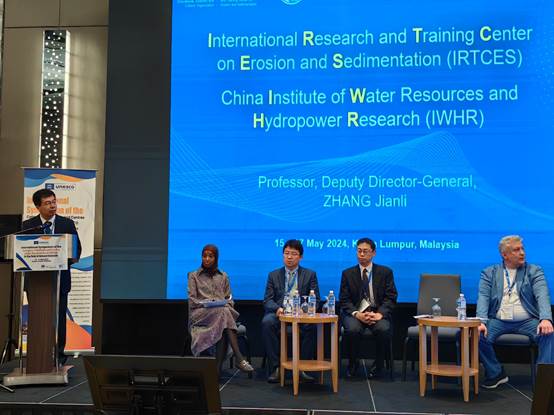
Presentation exchange and expert discussion by IRTCES
on the topic “Water and Disaster Reduction”.
Participants also
worked in small groups to conduct in-depth discussions on topics such as
"Key benefits of UNESCO Category 2 Centers", "Key challenges and
solutions for UNESCO Category 2 Centers", "How UNESCO Category 2
Centers can support UNESCO in achieving its priorities and actions",
"How to strengthen cooperation among UNESCO Category 2 Centers", and
"UNESCO, Permanent Missions and National Committees in their roles " were
discussed in depth. IRTCES, as the representative of Group III, held an in-depth
discussion on the following topics and made concluding remarks as group
representatives.
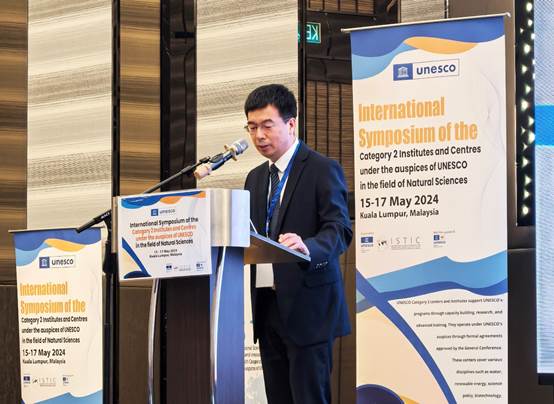
Concluding remarks of the panel by the IRTCES.
During the
conference, an exhibition of Category 2 Centers was also held, and UNESCO
Assistant Director-General Lidia Brito, Malaysian Minister of Education
Fadhlina Sidek, Minister of Science, Technology and Innovation Chang Lih Kang,
as well as relevant experts visited the exhibition of the IRTCES, and exchanged
views on topics of interest.
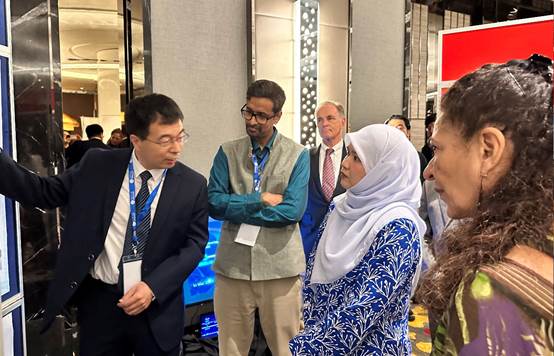
Lidia Brito, Assistant Director-General of
UNESCO, and Fadhlina Sidek, Minister of Education of Malaysia, visit the IRTCES
exhibition.
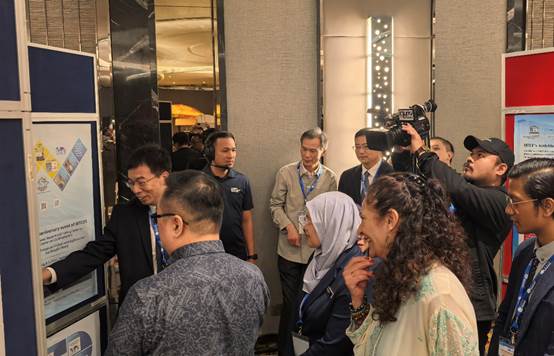
Lidia Brito, Assistant Director-General of UNESCO, and
Chang Lih Kang, Minister of Science, Technology and Innovation of Malaysia,
visit IRTCES exhibition.
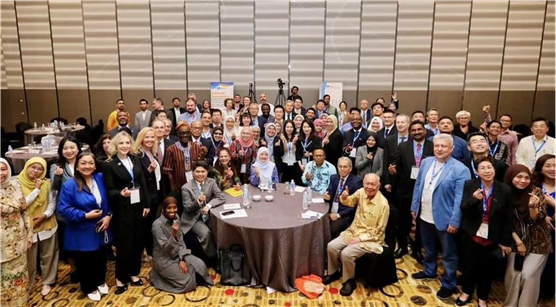
Group photo of some conference delegates.

